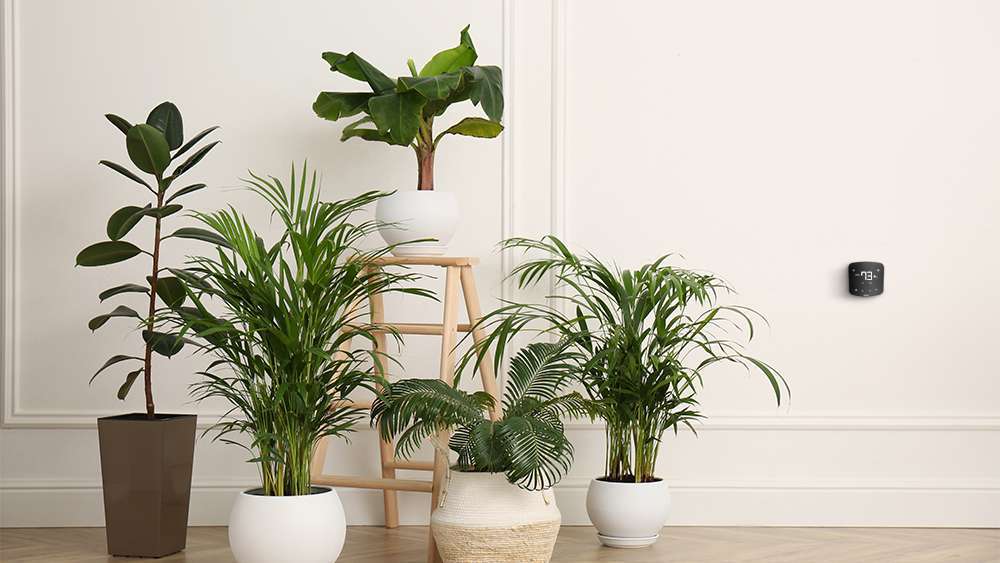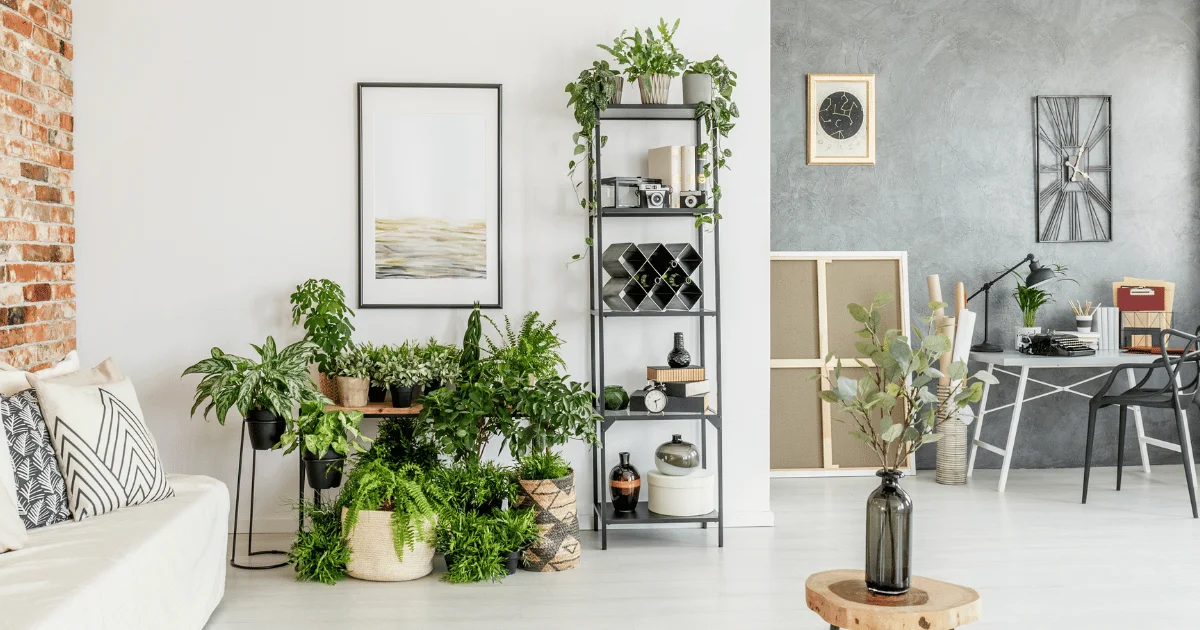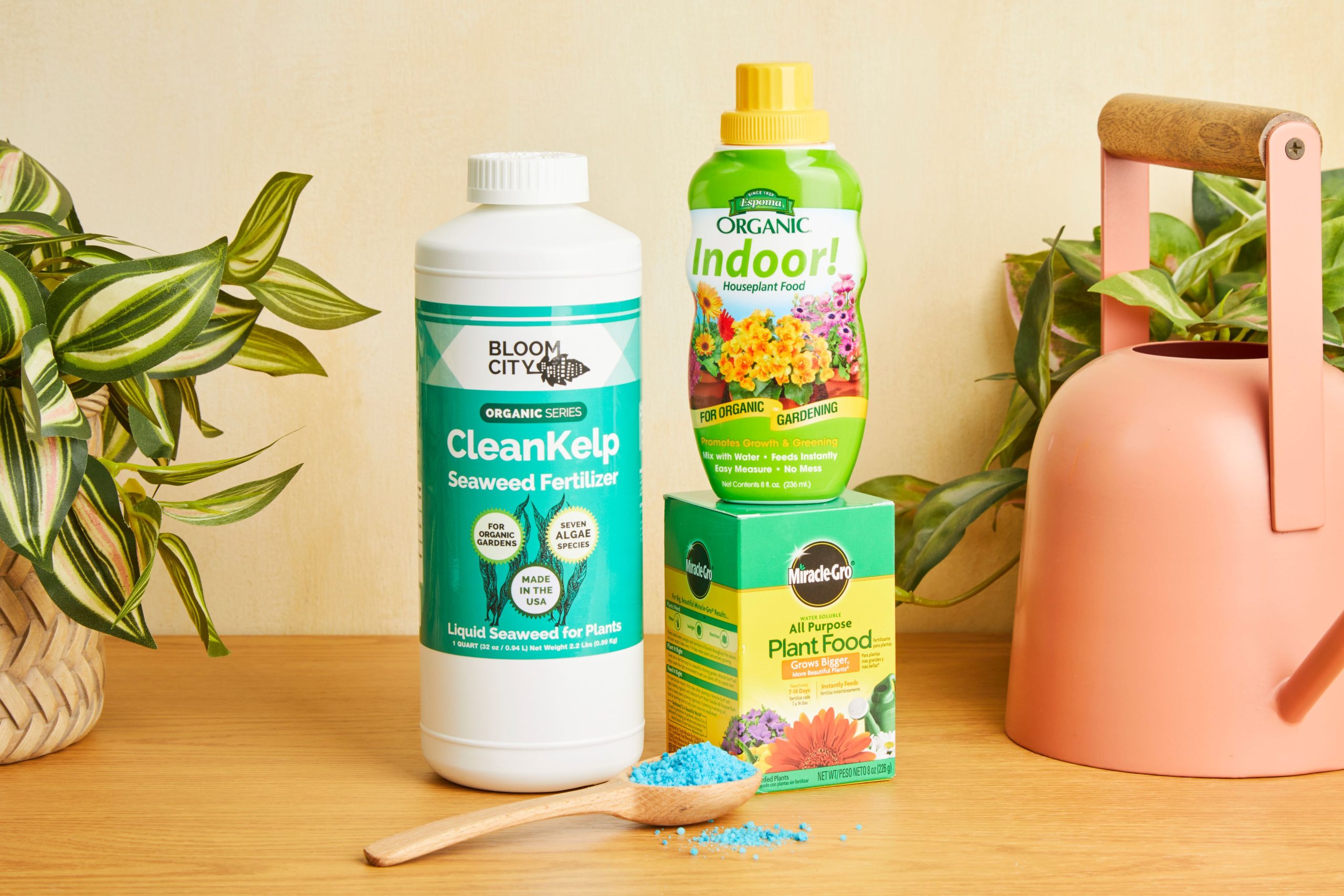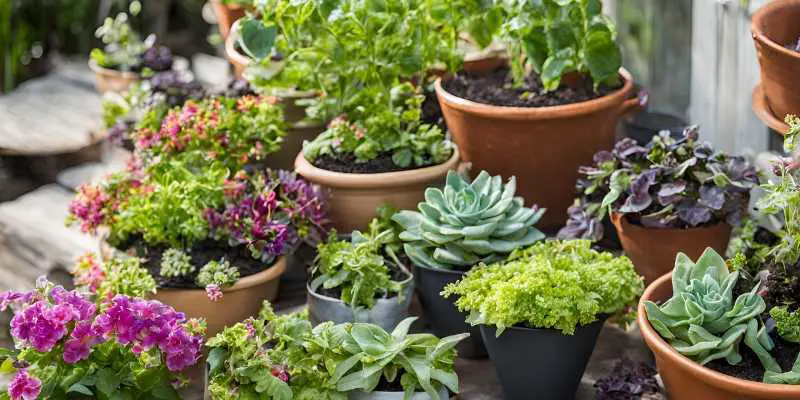The best air purifying plants for a living room are the Snake Plant, Spider Plant, and Peace Lily. These plants improve air quality and are easy to care for.
Choosing the right plants for your living room not only enhances the aesthetics but also promotes better health. Certain plants are known for their air purifying qualities, making them a valuable addition to any home. The Snake Plant, Spider Plant, and Peace Lily stand out for their ability to remove toxins and improve indoor air quality.
They are also easy to maintain, making them ideal for those without a green thumb. Incorporating these plants into your living space can create a more refreshing and inviting atmosphere, contributing to overall well-being.

Credit: www.goodhousekeeping.com
Spider Plant
The Spider Plant is a popular choice for living rooms. Known for its lush, green leaves, it adds beauty and freshness to any space. It’s also one of the best air purifying plants.
Benefits
Spider Plants offer numerous benefits for your living room.
- Air Purification: Removes toxins like formaldehyde and xylene.
- Low Maintenance: Easy to care for, even for beginners.
- Non-Toxic: Safe for pets and children.
- Improves Humidity: Adds moisture to the air.
Care Tips
Caring for a Spider Plant is simple. Follow these tips for a healthy plant.
- Light: Prefers indirect sunlight. Avoid direct sunlight.
- Water: Water when the soil feels dry. Don’t overwater.
- Temperature: Thrives in temperatures between 60°F and 75°F.
- Soil: Use well-draining potting soil.
- Fertilizer: Feed monthly during growing season.
| Aspect | Details |
|---|---|
| Light | Indirect sunlight |
| Water | When soil is dry |
| Temperature | 60°F to 75°F |
| Soil | Well-draining potting soil |
| Fertilizer | Monthly during growing season |
With these care tips, your Spider Plant will thrive and purify your living room air.
Snake Plant
The Snake Plant, also known as Sansevieria, is a popular choice for indoor spaces. It is known for its striking, upright leaves and its ability to thrive in low-light conditions. This plant not only adds beauty to your living room but also purifies the air, making it a fantastic addition to any home.
Benefits
- Air Purification: The Snake Plant filters out toxins like formaldehyde, xylene, and toluene.
- Low Maintenance: It requires minimal care and can survive neglect.
- Improves Humidity: It releases moisture into the air, which helps in dry climates.
- Decorative: Its tall, stiff leaves add an elegant touch to any room.
- Oxygen Production: The Snake Plant produces oxygen even at night.
Care Tips
| Aspect | Recommendation |
|---|---|
| Light | Prefers indirect sunlight. Can tolerate low light conditions. |
| Watering | Water once every 2-3 weeks. Allow soil to dry out between waterings. |
| Temperature | Thrives in temperatures between 60-85°F (15-29°C). |
| Soil | Use well-draining soil. A cactus mix works well. |
| Fertilizing | Fertilize once in spring and once in summer with a balanced fertilizer. |
The Snake Plant is a resilient, beautiful, and beneficial addition to your living room. Follow these care tips to keep it healthy and thriving.
Peace Lily
The Peace Lily is a popular choice for living rooms. It has striking white blooms and rich green leaves. This plant not only beautifies your space but also improves air quality.
Benefits
- Air Purification: The Peace Lily removes toxins like formaldehyde and benzene.
- Humidity Control: It releases moisture, improving indoor air quality.
- Low Maintenance: This plant is easy to care for and thrives in low light.
Care Tips
| Aspect | Details |
|---|---|
| Light | Prefers low to medium indirect light. |
| Water | Water once a week; keep soil moist but not soggy. |
| Temperature | Thrives in temperatures between 65-85°F (18-30°C). |
| Humidity | Prefers high humidity; mist leaves occasionally. |
| Soil | Use well-draining potting soil. |
| Fertilizer | Feed monthly during the growing season with a balanced fertilizer. |
Remember to wipe the leaves regularly to remove dust. This helps the plant breathe better. The Peace Lily is also pet-friendly, but ingestion may cause mild stomach upset. So, keep it out of reach of pets.
Aloe Vera
Aloe Vera is a top choice for air purification in your living room. This plant is not only beautiful but also easy to care for. It brings numerous benefits to your indoor environment.
Benefits
- Air Purification: Aloe Vera removes toxins like formaldehyde and benzene.
- Health Benefits: The gel inside the leaves can heal cuts and burns.
- Low Maintenance: This plant requires minimal water and care.
- Improves Air Quality: It releases oxygen at night, improving your sleep quality.
Care Tips
| Aspect | Details |
|---|---|
| Watering | Water every 3 weeks. Let soil dry out between waterings. |
| Light | Place in bright, indirect sunlight. |
| Soil | Use well-draining soil. |
| Temperature | Keep in a room between 55°F to 80°F. |
Following these care tips will keep your Aloe Vera healthy and thriving. Enjoy cleaner air and a touch of greenery in your living room!
Boston Fern
The Boston Fern is a popular choice for air purification. Its lush fronds make it a beautiful addition to any living room. This plant not only enhances your decor but also works hard to clean the air you breathe.
Benefits
- Air Purification: Boston Ferns are excellent at removing toxins like formaldehyde and xylene from the air.
- Humidity Control: These plants release moisture, which can help maintain humidity levels in your home.
- Stress Reduction: The presence of greenery can reduce stress and improve your mood.
Care Tips
| Care Aspect | Details |
|---|---|
| Light | Prefers indirect sunlight. Avoid direct sun to prevent leaf burn. |
| Water | Keep the soil moist. Water when the top inch of soil feels dry. |
| Humidity | Thrives in high humidity. Mist the leaves regularly or use a humidifier. |
| Temperature | Ideal temperature range is 60-75°F (16-24°C). |
| Soil | Use a rich, well-draining potting mix. |
| Fertilizer | Feed monthly with a balanced liquid fertilizer during the growing season. |
Areca Palm
The Areca Palm is a popular plant for living rooms. It is known for its beautiful, feathery fronds that add a tropical touch. This plant not only enhances the decor but also purifies the air.
Benefits
- Air Purification: The Areca Palm removes toxins like formaldehyde, benzene, and carbon monoxide.
- Humidity Control: It helps increase humidity, making the air more comfortable.
- Visual Appeal: Its lush green fronds add aesthetic value to any room.
Care Tips
- Light: Place the Areca Palm in bright, indirect sunlight.
- Watering: Water the plant when the top inch of soil feels dry.
- Soil: Use well-draining potting soil for best growth.
- Fertilizing: Feed monthly with a balanced liquid fertilizer during the growing season.
| Aspect | Details |
|---|---|
| Light | Bright, indirect sunlight |
| Water | When top inch of soil is dry |
| Soil | Well-draining potting soil |
| Fertilizer | Monthly during growing season |
Rubber Plant
The Rubber Plant is a popular choice for living rooms. It not only enhances the decor but also purifies the air. This plant has large, glossy leaves that are great at removing toxins from the air.
Benefits
- Air Purification: The Rubber Plant removes toxins like formaldehyde.
- Low Maintenance: It does not need much care to thrive.
- Improves Humidity: This plant helps increase humidity levels.
- Decorative: Its lush leaves make any room look vibrant.
Care Tips
| Aspect | Details |
|---|---|
| Light | Bright, indirect light is ideal. |
| Watering | Water when the top inch of soil is dry. |
| Soil | Use well-draining potting soil. |
| Temperature | Keep it between 60-75°F (15-24°C). |
| Humidity | Average room humidity is fine. |
For best results, wipe the leaves with a damp cloth. This keeps them dust-free and helps them breathe better.

Credit: cielowigle.com
Tips For Choosing Plants
Choosing the right plants for your living room enhances air quality. Consider these important factors before making your choice.
Light Requirements
Different plants need different light levels. Assess the light conditions in your living room.
- Bright Light: Rooms with large windows suit plants like Fiddle Leaf Fig or Areca Palm.
- Low Light: Darker rooms are ideal for plants like Snake Plant or Pothos.
Ensure the plant’s light needs match your room’s light levels.
Maintenance Level
Some plants need more care than others. Choose based on the time you can devote.
| Plant | Maintenance Level |
|---|---|
| Spider Plant | Low |
| Boston Fern | High |
| Peace Lily | Medium |
If you are busy, choose low-maintenance plants. For plant enthusiasts, high-maintenance plants may be more rewarding.

Credit: www.rasnetwork.org
Frequently Asked Questions
Which House Plant Purifies The Air The Most?
The Spider Plant is highly effective at purifying indoor air. It removes toxins like formaldehyde and benzene, making your home healthier.
Which Is The Best Indoor Plant For Living Room?
The best indoor plant for a living room is the Peace Lily. It purifies air, thrives in low light, and requires minimal care.
Can Indoor Plants Help Purify Air Room?
Yes, indoor plants can help purify air. They absorb toxins, release oxygen, and improve overall air quality.
What Plants Are Good For Removing Dust?
Spider plants, peace lilies, and rubber plants are excellent for removing dust. They trap particles on their leaves. Snake plants and English ivy also help purify the air, reducing indoor dust levels. These plants are easy to care for and effective in keeping your home clean.
Conclusion
Choosing the best air purifying plants can enhance your living room’s atmosphere. These plants not only beautify but also improve air quality. Incorporate them into your decor for a healthier, fresher home. Enjoy the benefits of cleaner air while adding a touch of nature to your living space.

My mission is to help you bring the beauty of nature indoors with expert advice, detailed plant care guides, and creative design ideas.




